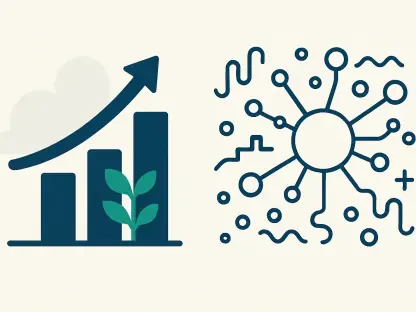The escalating costs of homeowners insurance have become a pressing concern, intertwined with an intricate web of environmental, economic, and industry trends. A crucial factor contributing to these rising costs is the insurance industry’s ongoing investment in and underwriting of fossil fuel projects. This financial support not only accelerates climate change but also indirectly burdens consumers through higher premiums. As climate change progresses, resulting in frequent and severe weather events, the insurance sector finds itself at a crossroads. It can either maintain the status quo or pivot towards more climate-responsible practices before the situation becomes irreversible. Data indicates that in Illinois, insurance premiums have surged significantly, highlighting the urgent need for a shift in practices to prevent further financial strain on consumers.
Insurance Industry and Fossil Fuel Investment
The dual role of the insurance industry as both an investor in and underwriter of fossil fuel enterprises illuminates the complexity of this issue. By continuing to fund oil and gas expansion projects, the sector directly contributes to climate change, escalating the frequency and magnitude of natural disasters. These disasters drive up claims costs, compelling insurers to increase premiums as a compensatory measure. Such a cycle not only impacts individual households, making insurance less affordable but also raises broader economic concerns by destabilizing financial security. The significant rate hikes in insurance premiums underscore the broader economic implications of the industry’s financial decisions. Consumer advocacy groups argue that the current trajectory is unsustainable and necessitates a profound reckoning within the industry.
The call from consumer groups for a reevaluation of the insurance sector’s environmental responsibilities is becoming increasingly loud and urgent. These groups highlight the vital role insurers can play in mitigating climate risks by redirecting investments toward sustainable initiatives and divesting from fossil fuels. By transitioning towards greener projects, the insurance industry could help curb the very climate changes that drive up their claims costs. Furthermore, incorporating sustainable investments into their portfolios could position insurers as leaders in the fight against climate change. Embracing renewable energy and denying underwriting for fossil fuel projects are pivotal steps the sector can take. By breaking this cycle, insurers can potentially stabilize premium rates and foster a more sustainable environment.
Impact on Consumers and Communities
The repercussions of the industry’s practices extend beyond premium increases, markedly affecting consumers and communities, particularly the most vulnerable. Low-income families are hit hardest by such rising costs, often facing the dilemma of choosing between insurance coverage and other essential expenses. The fear remains that this will escalate existing socio-economic disparities, making the prospect of homeownership even more daunting for these communities. The insurance sector’s decisions impact not only individual homeowners but also the broader housing market, constraining access to affordable housing. As premiums continue to climb, the ripple effect could potentially slow down housing development in vulnerable communities, straining them further and deepening the socio-economic divide.
From a broader perspective, the economic stability of communities can be significantly undermined as access to insurance becomes increasingly out of reach. With escalating premiums, more families might opt to forgo coverage altogether, leaving them exposed to the financial devastation that can follow natural disasters. The spiraling costs also have severe consequences for real estate markets, where elevated insurance premiums can deter potential buyers, further stagnating economic growth in these regions. To mitigate these issues, there’s a pressing need for the insurance industry to collaborate with governmental bodies, non-profit organizations, and community leaders to develop strategies that balance premium affordability with adequate coverage options for all socioeconomic segments.
Political Influences and Industry Responses
The political landscape plays a pivotal role in shaping the discourse around climate change and insurance costs, with various administrations influencing policies that impact the industry. Decisions such as withdrawing from international climate agreements and reducing support for green initiatives have consequential effects on the insurance sector’s approach to fossil fuel investments. Such actions can either support or hinder the sector’s transition toward sustainable practices, influencing both national and international climate change strategies. The impact of political shifts on policy can either catalyze or constrain the insurance industry’s progress toward environmental responsibility.
Meanwhile, some insurers attribute rising premiums to factors beyond climate change, such as increased construction material and labor costs. The American Property Casualty Insurance Association suggests that its members have limited energy-related assets and advocates for robust building codes and resilience measures to mitigate disaster impacts. However, industry watchdogs argue that state insurance regulators and industry leaders have not adequately addressed climate change in their agendas, suggesting a reluctance to shift away from profitable fossil fuel investments. An effective policy shift requires comprehensive regulations and reforms that consider the long-term impacts of climate change and encourage sustainable investment practices, ensuring the industry’s alignment with environmental preservation goals.
Charting a Sustainable Path Forward
The insurance industry’s dual role as both an investor in and underwriter of fossil fuel enterprises highlights a complex challenge. By financing oil and gas projects, this sector directly fuels climate change, leading to more frequent and severe natural disasters. These disasters drive up claims costs, forcing insurers to raise premiums as a necessary response. This cycle not only strains individual households by making insurance less affordable but also threatens broader economic stability by unsettling financial security. As rates increase, economic repercussions from the industry’s decisions grow more pronounced. Consumer advocacy groups argue that maintaining the present course is unsustainable and call for a significant reform within the sector. They urge insurers to reevaluate their environmental responsibilities by shifting investments toward sustainable initiatives and divesting from fossil fuels. Moving to greener projects could help mitigate climate risks and stabilize premiums, positioning insurers as leaders in combating climate change.









